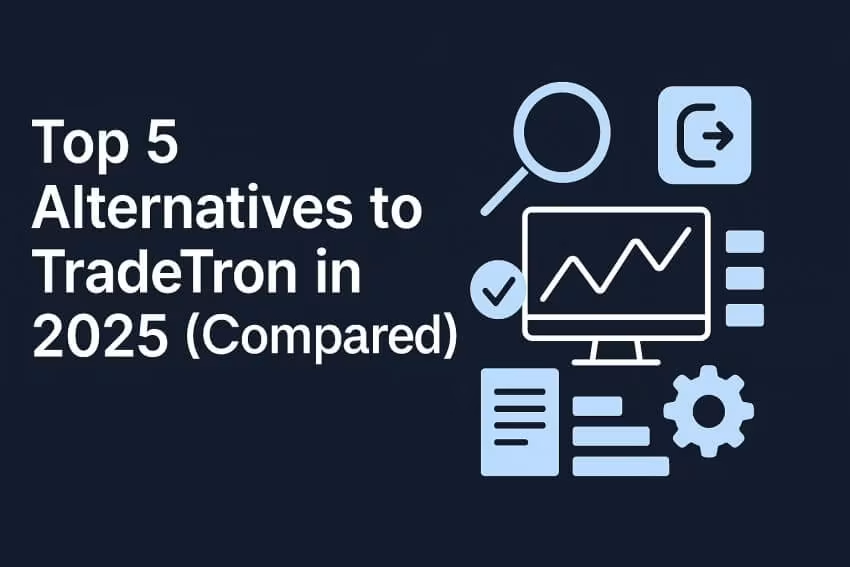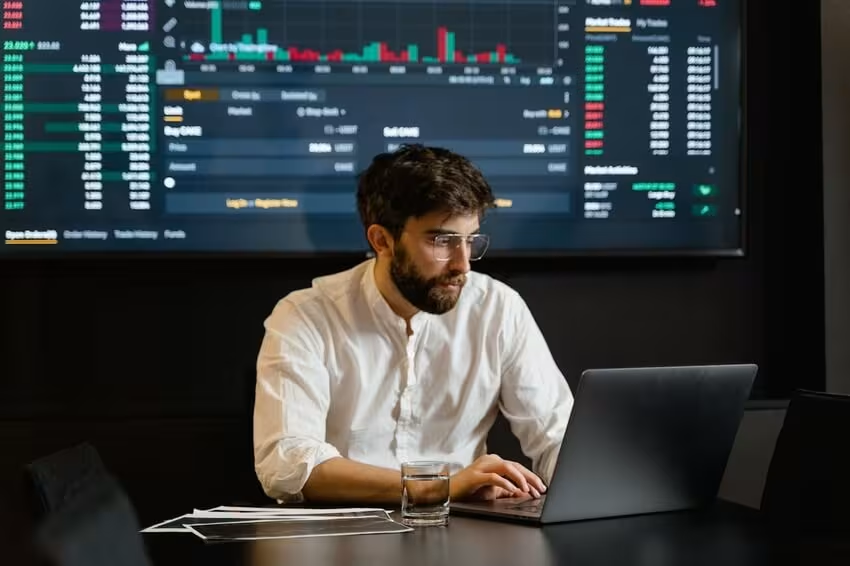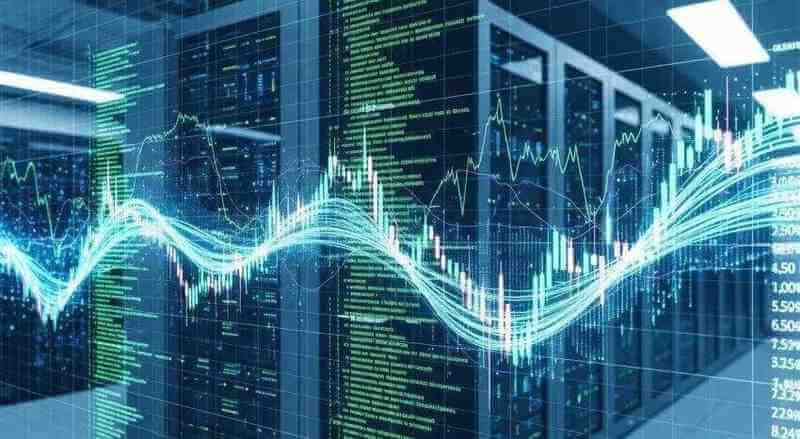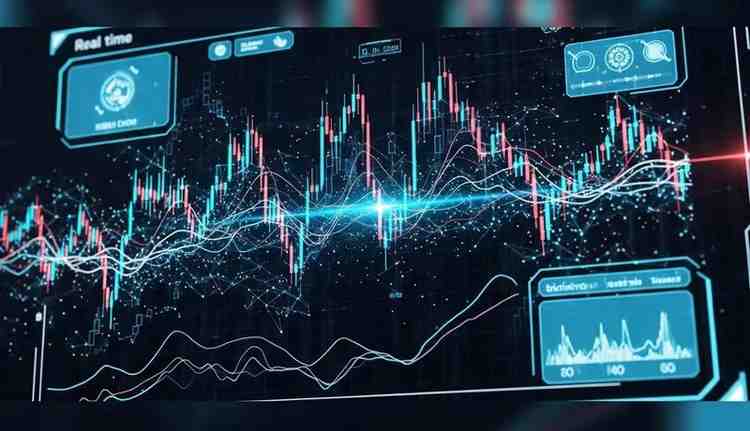In the fast-paced world of algorithmic trading, on various algo trading platforms, market making plays a pivotal role in ensuring liquidity, facilitating efficient price discovery, and maintaining orderly markets. This blog delves into the fundamentals of market making, exploring its principles, strategies, and execution in algorithmic trading.
What is Market Making?
Market making is a trading strategy where a trader, known as a market maker, continuously quotes both buy and sell prices for a financial instrument, thereby creating a market for that asset. Market makers stand ready to buy from sellers (bid) and sell to buyers (ask) at quoted prices, providing liquidity to the market.
Characteristics of a Market Maker
- Provides liquidity by continuously quoting buy and sell prices
- Profits from bid-ask spread, buying low and selling high
- Monitors order flow and adjusts quotes dynamically
- Facilitates price discovery and maintains orderly markets
- Utilises automated algorithms on algorithmic trading platforms for precise pricing and execution
- Implements risk management techniques to mitigate exposure
- Contributes to market efficiency and stability through active participation
How Does Market Making Work in Algorithmic Trading?
Principles of Market Making
- Liquidity Provision: Market makers facilitate trading by offering to buy and sell assets at quoted prices, ensuring liquidity and enabling smooth price discovery.
- Bid-Ask Spread: Market makers aim to profit from the bid-ask spread, the difference between the buying (bid) and selling (ask) prices. They aim to buy at lower prices and sell at higher prices, capturing the spread as their profit.
- Order Flow: Market makers monitor order flow and market conditions to adjust their quotes dynamically, responding to changes in supply and demand.
Market Making Strategies
- Traditional Market Making: In traditional market making, traders manually adjust their quotes based on market conditions, supply-demand dynamics, and risk appetite.
- Automated Market Making: With algorithmic trading on automated trading platforms, market making strategies are automated, allowing for faster execution, precise pricing, and continuous monitoring of markets.
- Statistical Arbitrage: Some market making strategies involve statistical arbitrage, exploiting temporary price discrepancies between related assets to try and capture profit.
Execution in Algorithmic Trading
- Market Data Analysis: Market makers analyse real-time market data, including price movements, order book depth, and trading volume, to determine optimal quoting strategies.
- Quote Management: Automated algorithms manage quote generation and modification, adjusting bid and ask prices dynamically to maintain competitive spreads and adapt to changing market conditions.
- Risk Management: Market makers employ risk management techniques, such as position limits, stop-loss orders, and hedging strategies, to mitigate exposure to adverse market movements and manage inventory effectively.
Benefits of Market Making in Algorithmic Trading:
- Enhanced Liquidity: Market making strategies improve market liquidity by providing continuous quotes and absorbing order flow, reducing bid-ask spreads and enhancing price efficiency.
- Price Discovery: Market makers facilitate price discovery by reflecting supply and demand dynamics in their quotes, helping establish fair and efficient market prices.
- Risk Management: Market making algorithms on automated trading platforms enable efficient risk management, allowing market makers to control exposure, manage inventory, and mitigate adverse market impact.
- Profit Generation: Market makers aim to capture bid-ask spreads as their profit, earning revenue from each executed trade while contributing to market efficiency and stability.
Challenges and Risks of Market Making
- Execution Risk: Market makers face execution risks, including latency, slippage, and order handling delays, which can impact profitability and undermine trading performance.
- Market Volatility: High market volatility can increase bid-ask spreads and widen price gaps, challenging market making strategies and potentially leading to losses.
- Competition: Intense competition among market makers can compress bid-ask spreads and tend to reduce profit margins, requiring sophisticated algorithms on algo trading platforms, and technology to maintain a competitive edge.
Future of Market Making in Algorithmic Trading
In the future, market making is expected to undergo significant changes driven by technological advancements, regulatory developments, and shifts in market dynamics.
- Automation and the use of advanced algorithms will play a central role, allowing market makers to quote prices more efficiently and adapt quickly to changing market conditions.
- High-frequency trading (HFT) firms are likely to dominate market making activities, leveraging ultra-fast execution speeds and sophisticated trading strategies.
- Additionally, market making is expected to become increasingly globalised, with market makers expanding their operations to international markets and exchanges. This trend towards globalisation will provide new opportunities for market makers but may also present challenges related to regulatory compliance and market structure differences across regions.
- In terms of operational aspects, market makers will continue to focus on providing continuous quotes, managing bid-ask spreads, automating execution processes, and implementing robust risk management strategies. These operational practices are essential for ensuring the effectiveness and increased profitability chances of market making activities in algorithmic trading on algorithmic trading platforms.
Market making, as we can see, is a fundamental aspect of algo trading in India. Market makers, thus, play a crucial role in ensuring the smooth functioning of financial markets. Understanding the principles, strategies, and execution of market making is essential for traders and investors looking to navigate today’s dynamic landscape of algorithmic trading effectively.












